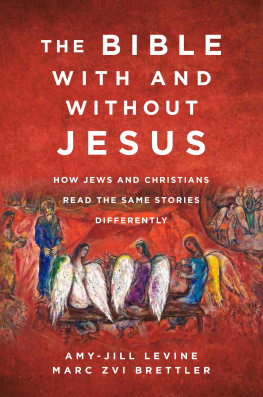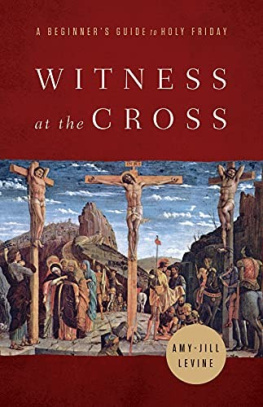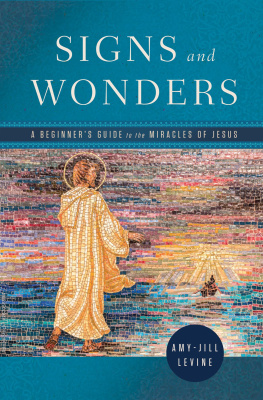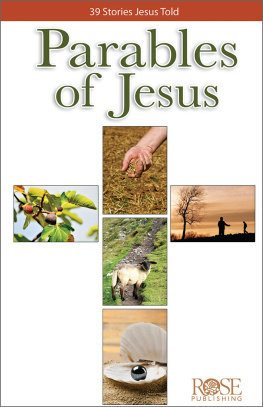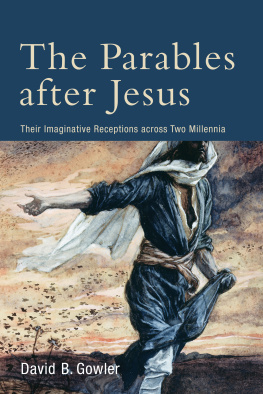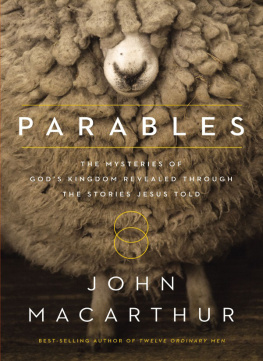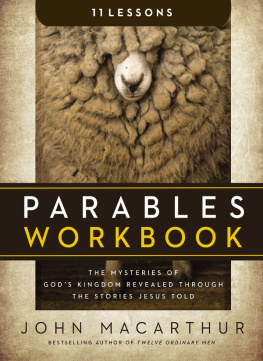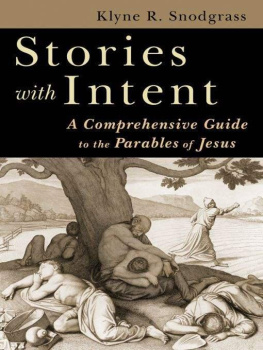Short Stories by Jesus
Leader Guide
Short Stories by Jesus:
The Enigmatic Parables of a Controversial Rabbi
Short Stories by Jesus: Participant Guide
978-1-5018-5816-1
978-1-5018-5817-8 eBook
Short Stories by Jesus: Leader Guide
978-1-5018-5818-5
978-1-5018-5819-2 eBook
Short Stories by Jesus: DVD
978-1-5018-5820-8
Short Stories by Jesus:
The Enigmatic Parables of a Controversial Rabbi
978-0-06-156103-0 Paperback
978-0-06-219819-8 eBook
SHORT STORIES BY JESUS
The Enigmatic Parables of a Controversial Rabbi
Leader Guide
Copyright 2018 Abingdon Press
All rights reserved.
No part of this work may be reproduced or transmitted in any form or by any means, electronic or mechanical, including photocopying and recording, or by any information storage or retrieval system, except as may be expressly permitted by the 1976 Copyright Act or in writing from the publisher. Requests for permission can be addressed to Permissions, The United Methodist Publishing House, 2222 Rosa L. Parks Blvd., Nashville, TN 37228-1306 or e-mailed to .
978-1-5018-5818-5
Scripture quotations unless otherwise noted are from the New Revised Standard Version Bible, copyright 1989 National Council of the Churches of Christ in the United States of America. Used by permission. All rights reserved worldwide. http://nrsvbibles.org/
Based on Short Stories by Jesus: The Enigmatic Parables of a Controversial Rabbi. Copyright 2014 by Amy-Jill Levine. Used by permission of HarperOne, an imprint of HarperCollins. All rights reserved. For information address HarperCollins Publishers, 195 Broadway, New York, NY 10007. http://www.harpercollins.com
18 19 20 21 22 23 24 25 26 27 10 9 8 7 6 5 4 3 2 1
MANUFACTURED IN THE UNITED STATES OF AMERICA
Contents

Introduction
In Short Stories by Jesus: The Enigmatic Parables of a Controversial Rabbi, New Testament scholar Amy-Jill Levine invites readers to reconsider several familiar parablesrecorded in the Gospels of Matthew, Mark, and Lukein hopes they will discover how challenging these stories actually are.
What makes the parables mysterious, or difficult, she writes, is that they challenge us to look into the hidden aspects of our own values, our own lives. They bring to the surface unasked questions, and they reveal the answers we have always known, but refuse to acknowledge.... Therefore, if we hear a parable and think, I really like that, or, worse, fail to take any challenge, we are not listening well enough.
For each of the parables she discusses, Levine:
provides a new, fairly literal translation in order to make us read the text as though for the first time;
situates the parable in its original, first-century Jewish context so we can appreciate what Jesuss original audience would and would not have heard in it;
distinguishes the parables themselves, in as close as we can get to their original forms, from the Gospel writers initial (and now canonical) interpretations of them;
exposes the anti-Jewish interpretationssometimes unintentional and subtle, at other times blatant and ill-intentionedthat have grown up around the parables through centuries of Christian interpretation;
opens engaging and provocative avenues to fresh interpretations, relevant to modern living.
This Leader Guide is for adults leading groups who are studying Short Stories by Jesus. Leaders will find it most helpful to have read Dr. Levines book, or at least the chapters covered in this study. Leaders will also want to be familiar with the accompanying Participant Guide.
Each session in this Leader Guide includes:
stated objectives;
a personal prayer of preparation and tips for leader preparation;
an opening activity or discussion related to the themes of the session;
a series of questions designed to engage participants with the parable, related Scripture, and Levines book;
opening and closing prayers.
Over the course of this study, you will invite learners to new appreciations of the following parables:
Session 1Lost Sheep, Lost Coin, Lost Son
In the first session, after introducing your groups members to the nature of parables as well as to Dr. Levines approach to studying Jesuss parables, you will help them examine the three parables in Luke 15 that involve something or someone being lost: the Lost Sheep (Luke 15:4-7), the Lost Coin (Luke 15:8-10), and the Lost Son (Luke 15:11-32). You will help them consider what taking count of who and what may be lost or missing from a community looks like in your own setting.
Session 2The Good Samaritan
In this session, you will help participants engage with the historical and cultural settings that would have influenced how Jesuss original audience heard this story, recorded for us in Luke 10:25-37. You will examine not only the story itself but also the narrative frame in which Luke has placed it, and you will consider how the frame interprets the story. You will also challenge participants to think concretely about what loving an enemy looks like in todays world.
Session 3The Pearl of Great Price
In this session, your group turns its attention from longer parables to one of Jesuss shortest, preserved in Matthew 13:45-46. You will consider how this parable provokes hearers, in Jesuss day and today, to identify and prioritize valuable treasure in their own lives. You will gain further insight into the parable as you compare and contrast it with Matthews account of Jesuss encounter with a rich, would-be follower (19:16-30). And you will lead your group in putting into words some of the alternative standards that identify the kingdom of heaven.
Session 4The Mustard Seed
In this session, you and your group members will practice comparing and contrasting variant versions of the same parable (found in Mark 4:30-32, Matthew 13:31-32, and Luke 13:18-19). You will also study similar images that Jesus used to describe Gods kingdom (leaven in Matthew 13:33 and Luke 13:20-21 and a growing seed in Mark 4:26-29), and you will gain an appreciation of how a range of images can enhance our understanding of Jesuss teaching. You will also consider how to discern when faithfulness to God and Gods kingdom involves taking direct action and when it involves patient trust in Gods action.
Session 5The Laborers in the Vineyard
In this session, you and your group will study Jesuss parable (Matthew 20:1-16) on two levels. You will consider its spiritual lessons by exploring Scriptural associations of a vineyard with Gods people, and you will weigh its concrete, practical economic applications. You and participants will think about what economically generous actions you will take in your own lives to express your faithfulness to God.
Session 6The Widow and the Judge
In the final session, you and your group will study one of Jesuss most enigmatic and morally ambiguous parables (Luke 18:1-8). You will consider the parable both within and outside of Lukes narrative frame for it. You will spend time examining biblical images of and stories about widows, and will explore what we gain when we reject stereotypes (even those that may be inspired by Scripture) in favor of viewing and engaging with other people as individuals. You will also have the chance to explore both the problem of judging others and the difference between justice and vengeance.
Next page

